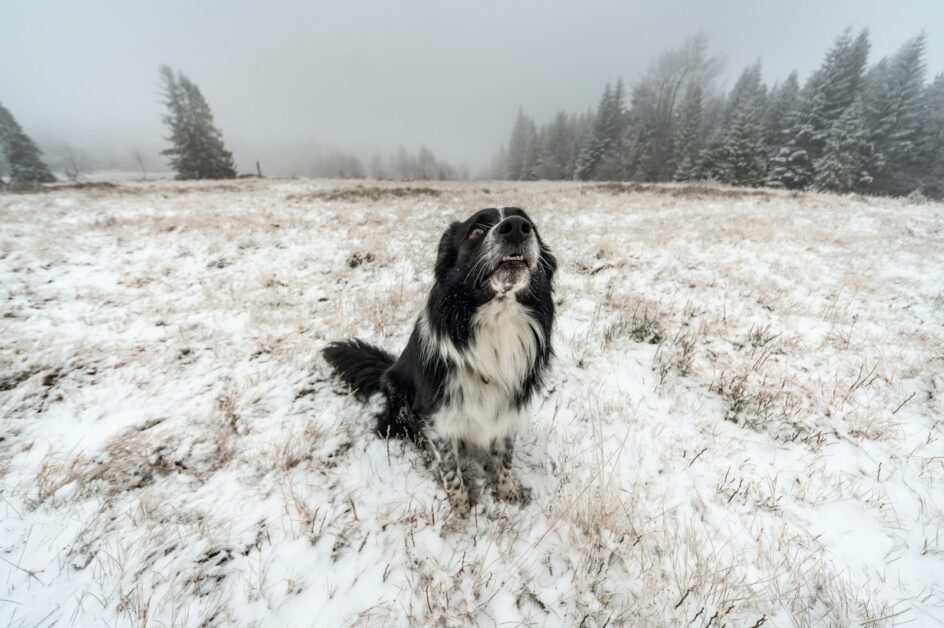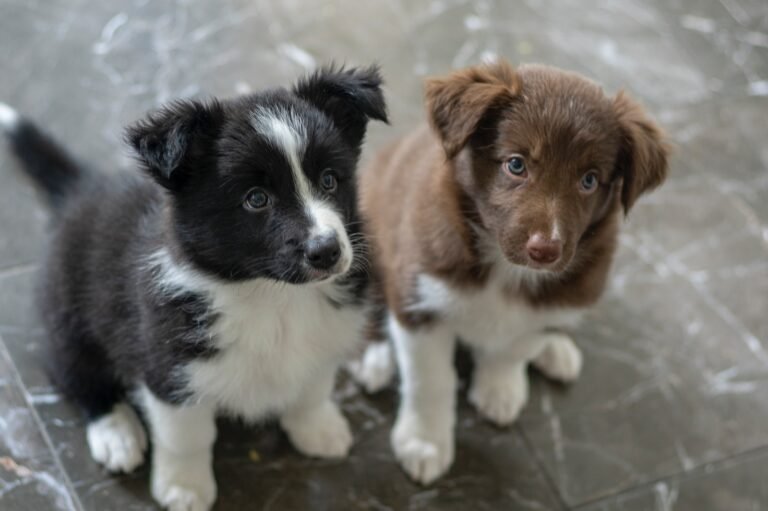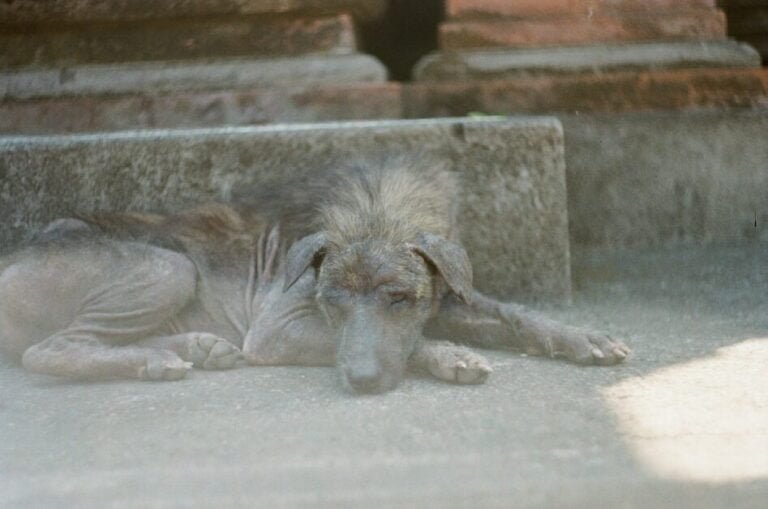The Science Behind Border Collie Hair Growth: What Every Owner Should Know
Border Collies are known for their beautiful, thick coats, but understanding the hair growth cycle of these dogs is essential for maintaining their overall health and appearance. The hair growth cycle of Border Collies consists of three main phases: anagen, catagen, and telogen. During the anagen phase, the hair follicles are actively growing, and this is when the hair is at its longest and healthiest. The catagen phase is a transitional phase where the hair follicles begin to shrink and detach from the blood supply. Finally, the telogen phase is when the hair follicles are at rest, and shedding occurs as new hair begins to grow. Understanding these phases is crucial for ensuring that your Border Collie’s coat remains healthy and vibrant.
During the anagen phase, it is important to provide your Border Collie with the proper nutrition and grooming to support healthy hair growth. Additionally, understanding the factors that can affect the hair growth cycle, such as genetics, nutrition, grooming techniques, and environmental factors, is essential for maintaining optimal hair growth in Border Collies. By understanding the hair growth cycle and the factors that can influence it, you can ensure that your Border Collie’s coat remains healthy and lustrous.
Factors Affecting Border Collie Hair Growth
Several factors can affect the hair growth of Border Collies, including genetics, nutrition, grooming techniques, environmental factors, hormonal changes, and health issues. Genetics play a significant role in determining the length, texture, and color of a Border Collie’s coat. Certain genetic factors can predispose a Border Collie to specific hair growth problems, such as alopecia or excessive shedding. Additionally, nutrition plays a crucial role in supporting healthy hair growth in Border Collies. A diet rich in essential nutrients, such as protein, omega-3 fatty acids, and vitamins, is essential for maintaining a healthy coat.
Grooming techniques also play a vital role in promoting healthy hair growth in Border Collies. Regular brushing and grooming help to remove dead hair and distribute natural oils, which can help to prevent matting and tangles. Environmental factors, such as temperature, humidity, and exposure to sunlight, can also impact a Border Collie’s hair growth. Hormonal changes, such as pregnancy or puberty, can affect the hair growth cycle in Border Collies. Additionally, certain health issues, such as allergies or thyroid problems, can also impact a Border Collie’s hair growth. Understanding these factors and their impact on hair growth is essential for maintaining a healthy coat in Border Collies.
The Role of Genetics in Border Collie Hair Growth
Genetics play a significant role in determining the length, texture, and color of a Border Collie’s coat. Certain genetic factors can predispose a Border Collie to specific hair growth problems, such as alopecia or excessive shedding. Understanding the genetic factors that can impact a Border Collie’s hair growth is essential for maintaining a healthy coat. For example, certain genetic mutations can lead to alopecia, a condition characterized by hair loss and thinning. Additionally, some Border Collies may inherit a predisposition to excessive shedding, which can lead to a dull and unhealthy coat.
It is essential for Border Collie owners to be aware of their dog’s genetic predispositions and to take proactive measures to support healthy hair growth. This may include providing a balanced diet, regular grooming, and addressing any underlying health issues that may impact the coat. By understanding the role of genetics in Border Collie hair growth, owners can take steps to promote a healthy and vibrant coat in their dogs.
Nutrition and Its Impact on Border Collie Hair Growth
Nutrition plays a crucial role in supporting healthy hair growth in Border Collies. A diet rich in essential nutrients, such as protein, omega-3 fatty acids, and vitamins, is essential for maintaining a healthy coat. Protein is particularly important for supporting hair growth, as it provides the building blocks for strong and healthy hair follicles. Omega-3 fatty acids, found in fish oil and flaxseed, can help to promote a shiny and lustrous coat. Additionally, vitamins such as A, E, and Biotin are essential for supporting healthy skin and hair.
It is important for Border Collie owners to provide their dogs with a balanced and nutritious diet to support healthy hair growth. This may include feeding a high-quality commercial dog food or a homemade diet that is formulated to meet the specific nutritional needs of Border Collies. Additionally, supplements such as fish oil or vitamin E may be beneficial for promoting healthy hair growth. By ensuring that their Border Collies receive the proper nutrition, owners can help to support a healthy and vibrant coat in their dogs.
Grooming Techniques to Promote Healthy Hair Growth in Border Collies
Grooming plays a vital role in promoting healthy hair growth in Border Collies. Regular brushing and grooming help to remove dead hair and distribute natural oils, which can help to prevent matting and tangles. Additionally, grooming can help to stimulate the hair follicles and promote healthy hair growth. It is important for Border Collie owners to establish a regular grooming routine to support a healthy coat. This may include brushing their dog’s coat several times a week, using a slicker brush or comb to remove dead hair and prevent matting.
In addition to regular brushing, it is important to bathe a Border Collie as needed to keep their coat clean and healthy. Using a gentle dog shampoo and conditioner can help to maintain the natural oils in the coat and prevent dryness. It is also important to trim a Border Collie’s nails regularly and to clean their ears to prevent infections. By establishing a regular grooming routine, Border Collie owners can help to promote healthy hair growth and maintain a vibrant coat in their dogs.
Common Hair Growth Problems in Border Collies
Despite their beautiful coats, Border Collies are prone to several common hair growth problems. One of the most common issues is excessive shedding, which can lead to a dull and unhealthy coat. Excessive shedding can be caused by a variety of factors, including genetics, nutrition, grooming techniques, and environmental factors. Understanding the underlying cause of excessive shedding is essential for addressing the problem and promoting healthy hair growth in Border Collies.
Another common hair growth problem in Border Collies is alopecia, a condition characterized by hair loss and thinning. Alopecia can be caused by genetic factors, hormonal changes, or underlying health issues. It is important for Border Collie owners to be aware of the signs of alopecia and to seek veterinary care if their dog is experiencing hair loss. Additionally, skin infections, allergies, and parasites can also impact a Border Collie’s hair growth. By understanding these common hair growth problems, owners can take proactive measures to support a healthy coat in their dogs.
Environmental Factors and Their Influence on Border Collie Hair Growth
Environmental factors, such as temperature, humidity, and exposure to sunlight, can impact a Border Collie’s hair growth. For example, extreme temperatures can cause a Border Collie’s coat to become dry and brittle, leading to hair breakage and shedding. Additionally, exposure to sunlight can cause the coat to fade and become dull. Understanding the impact of environmental factors on a Border Collie’s hair growth is essential for maintaining a healthy and vibrant coat.
It is important for Border Collie owners to take proactive measures to protect their dog’s coat from environmental factors. This may include providing shade and shelter during extreme temperatures, using a dog-safe sunscreen to protect the coat from sun damage, and using a humidifier to maintain proper humidity levels in the home. By taking these steps, owners can help to minimize the impact of environmental factors on their Border Collie’s hair growth and maintain a healthy coat.
Hormonal Changes and Their Effect on Border Collie Hair Growth
Hormonal changes, such as pregnancy or puberty, can affect the hair growth cycle in Border Collies. During pregnancy, female Border Collies may experience changes in their coat, including increased shedding or changes in texture. Additionally, male Border Collies may experience changes in their coat during puberty, such as an increase in shedding or changes in color. Understanding the impact of hormonal changes on a Border Collie’s hair growth is essential for maintaining a healthy coat.
It is important for Border Collie owners to be aware of the potential impact of hormonal changes on their dog’s coat and to take proactive measures to support healthy hair growth. This may include providing a balanced diet, regular grooming, and addressing any underlying health issues that may impact the coat. By understanding the role of hormonal changes in Border Collie hair growth, owners can take steps to promote a healthy and vibrant coat in their dogs.
Health Issues That Can Affect Border Collie Hair Growth
Certain health issues can impact a Border Collie’s hair growth, including allergies, skin infections, parasites, and thyroid problems. Allergies, such as food allergies or environmental allergies, can cause itching and skin irritation, leading to hair loss and thinning. Skin infections, such as bacterial or fungal infections, can also impact a Border Collie’s hair growth. Additionally, parasites, such as fleas or mites, can cause itching and hair loss. Thyroid problems, such as hypothyroidism, can also impact a Border Collie’s hair growth.
It is important for Border Collie owners to be aware of the signs of these health issues and to seek veterinary care if their dog is experiencing hair loss or changes in their coat. By addressing these underlying health issues, owners can help to support healthy hair growth in their Border Collies and maintain a vibrant coat.
Tips for Maintaining Optimal Hair Growth in Border Collies
Maintaining optimal hair growth in Border Collies requires a proactive approach that includes providing a balanced diet, regular grooming, and addressing any underlying health issues. To support healthy hair growth, it is important to provide a diet rich in essential nutrients, such as protein, omega-3 fatty acids, and vitamins. Additionally, regular grooming, including brushing, bathing, and nail trimming, is essential for maintaining a healthy coat. By establishing a regular grooming routine, Border Collie owners can help to promote healthy hair growth and prevent common hair growth problems.
It is also important for Border Collie owners to be aware of the impact of genetics, environmental factors, hormonal changes, and health issues on their dog’s hair growth. By understanding these factors and their potential impact on a Border Collie’s coat, owners can take proactive measures to support healthy hair growth. This may include providing shade and shelter during extreme temperatures, using a dog-safe sunscreen to protect the coat from sun damage, and seeking veterinary care if their dog is experiencing hair loss or changes in their coat. By taking these steps, owners can help to maintain a healthy and vibrant coat in their Border Collies.









